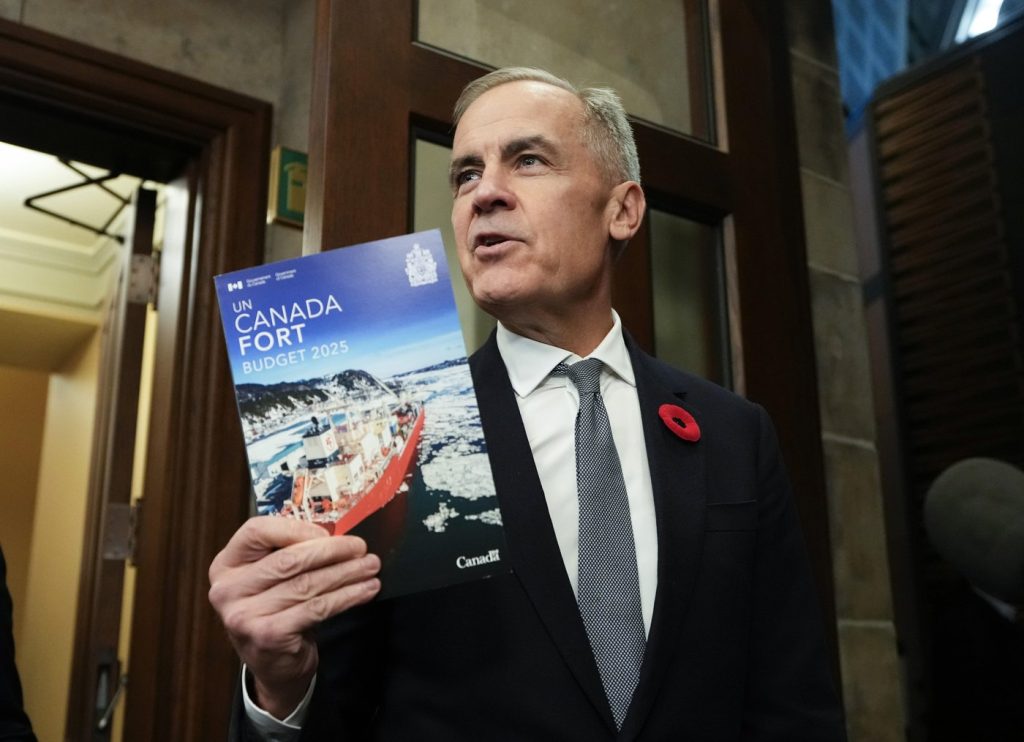OTTAWA – Recent polling indicates that Canadians have shown a lukewarm reaction to the federal budget unveiled on November 4, 2025, by Prime Minister Mark Carney's government. One pollster suggests that all political parties should reconsider launching an election campaign based on this spending plan due to the mixed feedback from the public.
A survey conducted by Leger revealed that only 30 percent of the 1,565 adult Canadians polled approved of the budget. In contrast, 37 percent expressed negative sentiments, while the remainder declined to provide an opinion. Notably, just 15 percent of respondents believed the proposed budget would positively impact their personal financial situations, whereas 32 percent anticipated a negative effect.
Andrew Enns, Leger’s executive vice-president for central Canada, commented that while the Liberals garnered support for specific major expenditures, such as increased funding for defense and infrastructure, the budget failed to address Canadians' immediate financial concerns. Enns elaborated that affordability remained a critical issue for many voters, which could pose a challenge for the government moving forward.
The budget forecasts a significant deficit of $78.3 billion for the current fiscal year, alongside a considerable increase in net new spending aimed at diversifying Canada’s economy away from its dependence on the United States. It was reported that 42 percent of the budget's spending items focus on enhancing Canada’s sovereignty amid U.S. tariffs and a changing global trade environment, while 36 percent target affordability. However, the poll from Leger suggests that immediate economic relief measures proposed in the budget did not resonate with most households.
A considerable 55 percent of survey participants expressed a desire for personal tax cuts in the budget. This comes despite the already introduced one-percentage-point tax reduction for individuals in the lowest income bracket that took effect in July. Enns believes that, amidst the vast figures and proposals in the budget, the significance of the tax cut may have been overlooked by many Canadians, highlighting a communication challenge for the Liberals.
Even though a high number of respondents felt the budget did not adequately address the rising cost of living, about 42 percent agreed with prioritizing long-term economic growth over short-term affordability. On the other hand, half that percentage disagreed with this approach. This budget is set to be voted on in the House of Commons next week, representing a crucial confidence test for the minority Liberal government.
While the recent shift of Nova Scotia MP Chris d'Entremont from the Conservatives to the Liberals provided the government with another vote, it still requires support from an additional party to ensure the budget's passage. If the budget fails to receive parliamentary approval, it could potentially trigger an election.
Support for the budget has been strongest among likely Liberal voters, yet survey data revealed that various elements of the budget gained cross-party backing. For instance, Conservative-leaning constituents were more likely to approve of measures intended to limit immigration levels, whereas NDP supporters showed overwhelming enthusiasm for funding local infrastructure projects, such as roads and health facilities.
Enns cautions that political parties should be careful when opposing the budget as they consider potential election strategies. He suggests the Liberals also tread carefully, as affordability issues remain at the forefront of voters' concerns, and the significance of U.S. tariffs may have diminished since earlier this year.
The Canadian Research Insights Council emphasizes that online surveys, such as this one, do not allow for margin of error assessments since they do not randomly sample the overall population. This report underscores the current political climate and the potential implications for the federal budget and electoral strategies in Canada.











